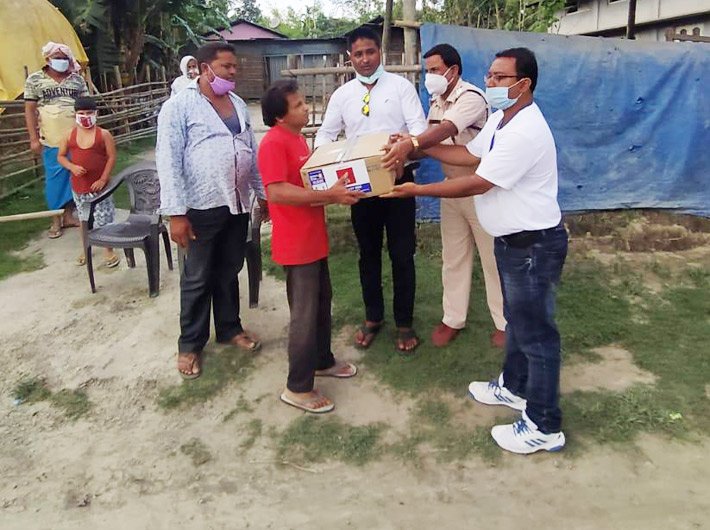Akshaya Patra Foundation CEO writes on the challenge of implementing schemes systematically and resiliently to ensure that next generation has access to sufficient, nutritious food
One of the most significant setbacks from the massive upheaval caused by the Covid-19 pandemic is its effect on food and nutrition security. The pandemic has compounded the already rampant social inequity by adversely affecting the socio-economic status of millions of families across the nation. In the given situation, malnutrition rates are predicted to rise at an alarming pace in the coming years.
India has come a long way as an industrious and agricultural nation, and has become one of the largest producers of essential food grains, such as rice and wheat, pulses and milk. Despite this, we rank 94th of 104 countries on the Global Hunger Index (GHI) 2020 [https://www.globalhungerindex.org/india.html]. In its attempt to address the prevalent issue of malnutrition, the government has implemented various public feeding programmes—the Integrated Child Development Services (ICDS), Anganwadi feeding and Mid-Day Meal (MDM) scheme are among them.
In providing a nutritious school lunch every day to children in government and aided schools, the MDM programme upholds their Right to Food and Right to Education. It improves their health and nutrition profile and addresses the issue of classroom hunger, thus enabling them to concentrate on classroom activities and enhancing their learning capacities. The assurance of a meal also boosts enrolment, attendance and retention in schools. All these aspects firmly establish the increased relevance of this programme in the post-Covid world, marked by increased levels of food and nutrition insecurity.
In September 2020, as the nation observed Nutrition Month, prime minister Narendra Modi aptly pointed out that nation and nutrition are very closely interrelated [https://pib.gov.in/PressReleasePage.aspx?PRID=1649764]. For the growth of any nation, it is highly imperative that the nutritional balance of its population is upheld and maintained. The pandemic has brought the entire population face-to-face with the issue of hidden hunger and brought to the fore the wide gaps in our access to food. Consequently, it has displayed that there is an urgent need to take a more grassroots approach to effectively address malnutrition.
It is increasingly becoming evident that our public feeding programmes need to be enhanced to address the nutrition gap that has widened as a result of the pandemic. In the post-Covid world, measures have to be taken to this effect. In the context of the MDM scheme, for instance, strengthening the programme by designing an enhanced menu can be one such measure. Providing children with a nutrition-dense snack in addition to mid-day meals can be another. These changes will benefit over 115 million beneficiaries [http://mdm.nic.in/mdm_website/] of the programme across the country. Furthermore, investments have to be made in research to better understand the extent of malnutrition and track the success of our efforts to address the same.
The widened nutrition gap in the aftermath of the pandemic also makes a strong case for fast-tracking of the breakfast programme proposed in the National Education Policy 2020 to benefit the millions of children studying in government schools. This programme is devised keeping in mind that optimal learning is not quite possible when children are malnourished. In proposing a national breakfast programme, the NEP 2020 states, “Research shows that the morning hours after a nutritious breakfast can be particularly productive for the study of cognitively more demanding subjects” [https://www.education.gov.in/sites/upload_files/mhrd/files/NEP_Final_English_0.pdf]. It goes on to highlight the criticality of this period to a child’s learning and the need to leverage it “by providing a simple but energising breakfast” to children at the school. This initiative will be particularly beneficial to Government school children who come from socio-economically challenged families. In such families, it has been often observed that parents have to leave early for work and therefore, are unable to arrange for the first meal of the day for their children.
The Akshaya Patra Foundation has been working on a similar programme since 2019 in Chennai. Kaalai Unavu Thittam, the Foundation’s breakfast programme, was initiated with the support of the government of Tamil Nadu and the Greater Chennai Corporation. It was born from a similar realisation that although children are present in class, they will not be able to concentrate on classroom activities if they are hungry and if their bodies lack the essential nutrients that are often found in the first meal of the day—the breakfast.
From the many largescale public feeding programmes that are there in India, it has become increasingly clear that the government is committed to addressing malnutrition in the country. So the need right now is to ensure that these programmes are implemented systematically and resiliently to ensure that the citizens of this country—especially the generation that shall lead this country in the years to come—have access to nutritious food in sufficient quantities at all times.
Shridhar Venkat is CEO, The Akshaya Patra Foundation.
